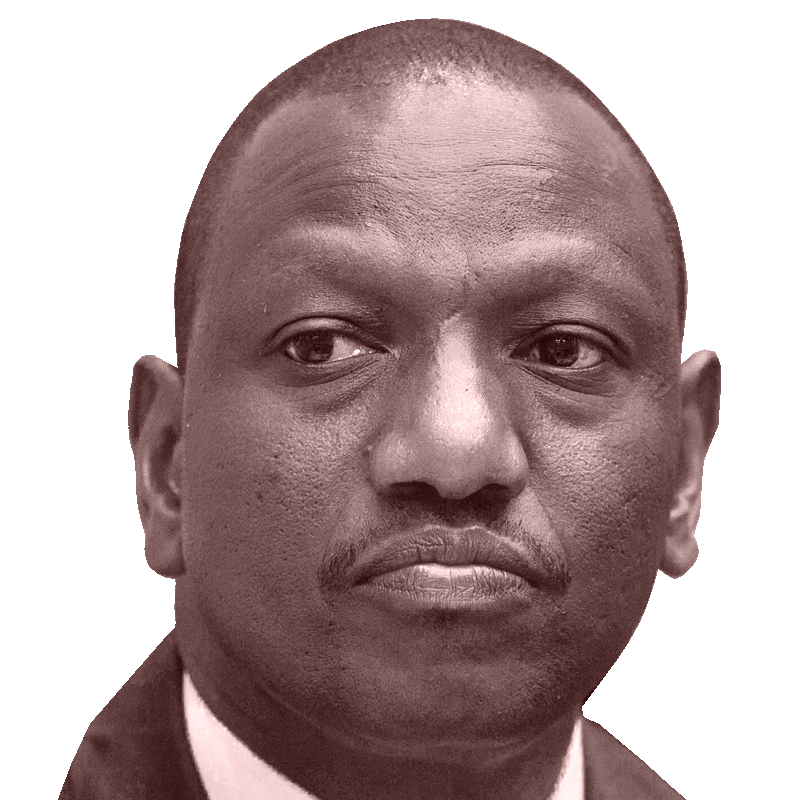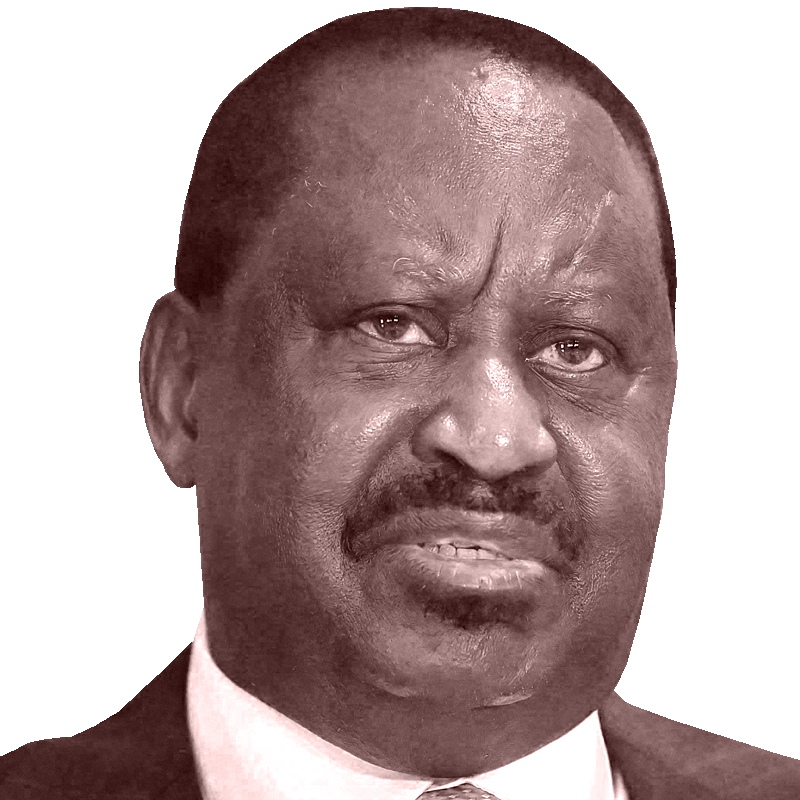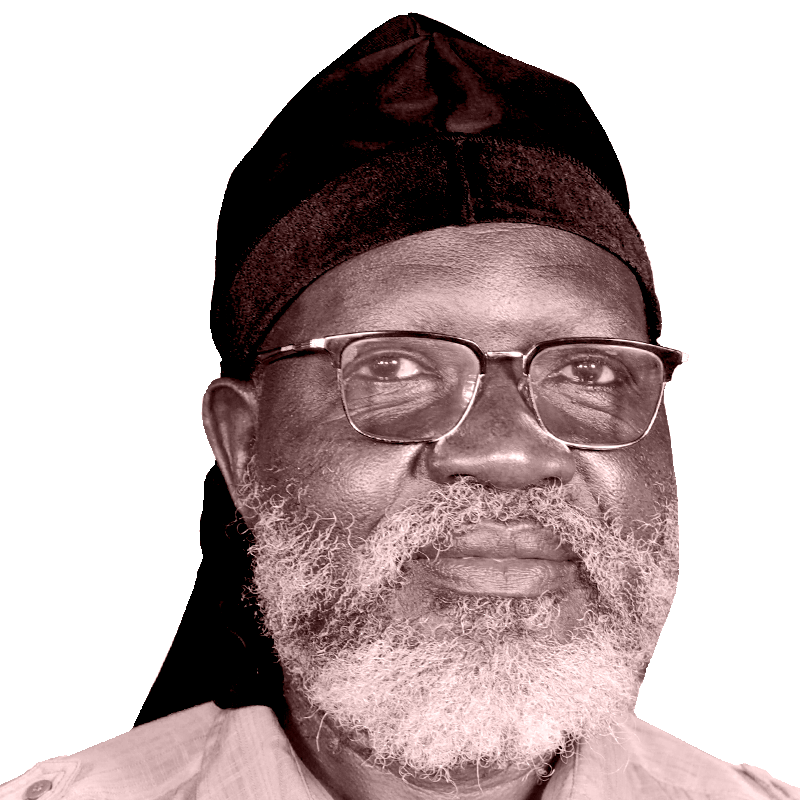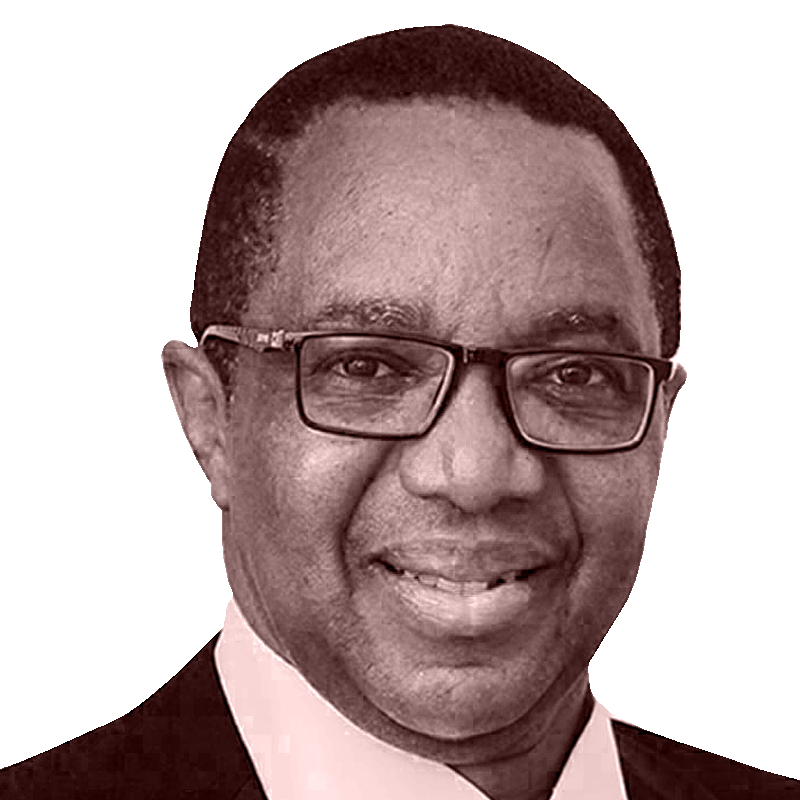Kenya election result: Raila Odinga and William Ruto await verdict
- Published
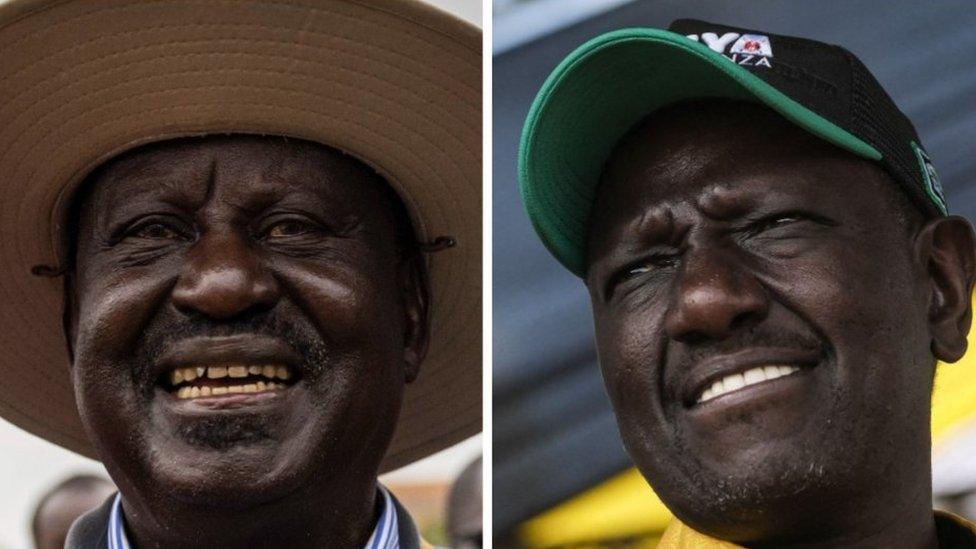
Former Prime Minister Raila Odinga (left) is just behind Deputy President William Ruto in the count
The results of Kenya's much-awaited presidential election will be known shortly, the electoral body has announced.
Preparations for the declaration are underway at the national tallying centre in the country's capital, Nairobi.
Deputy President William Ruto has a narrow lead over ex-Prime Minister Raila Odinga in the latest count.
Kenyans have been waiting anxiously for six days for the results.
Supporters of both of the main candidates, dressed in party colours and in celebratory mood, have gathered at various centres across the country to wait for the announcement.
Mr Ruto and two other presidential candidates have arrived at the culture centre at Bomas where the event is being held. It is however unclear if Mr Odinga, who was also invited by the the Independent Electoral and Boundaries Commission (IEBC), would attend the event.
A choir has been performing at the packed auditorium since morning.
There have been calls for peace from several leaders and bodies including the Catholic Church, which asked for "patience and civility" and urged the main candidates to show "restraint and statesmanship".
Mr Ruto leads the official tally at 51% against Mr Odinga's 48%, according to local media. Verified results from 39 of the 290 constituencies are yet to be declared.
Media organisations have also been releasing provisional tallies using official data from the 46,000 polling stations. They also show a tight race. About 14 million votes were cast - a turnout of 65%.

IEBC officials have finished verifying the votes results of the presidential election.
The process involved comparing photographs of result forms from the polling stations to physical forms brought to the centre to ensure they match.
This painstaking effort saw the head of the electoral body, Wafula Chebukati, accuse agents from the main parties, who were witnessing the process, of turning a straightforward exercise into a "forensic" one.
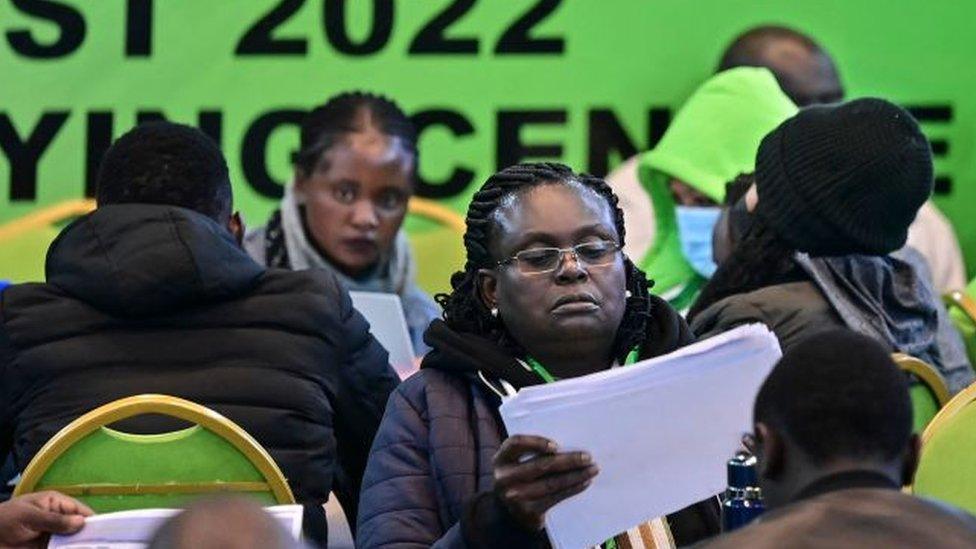
Poll officials compared tens of thousands of paper and electronic results forms to see if they match
How are Kenyans feeling?
There is a sense of anxiety in the country with many people who spoke to the BBC saying they want the announcement to be made quickly because the tense atmosphere had stalled economic activities in the country. Schools also remain closed.
Disputed elections in the past have led to violence or the whole process election being cancelled.
Following the 2007 vote, at least 1,200 people were killed and 600,000 fled their homes following claims of a stolen election.
In 2017, huge logistical errors led the Supreme Court to annul the result and order the presidential poll to be re-run.
Allegations of election rigging are as old as the country. It was part of politics even before multiparty elections were re-introduced in the 1990s, but the push for free and fair elections has never faltered.
After the violence that followed the 2007 election, political parties and activists argued for the use of technology instead of physical registers, which could be easily manipulated, to verify voters.
This year's election is the third time technology has been used but it has yet to deliver an election that has not been challenged in the courts.
Officials are under pressure to get things right this time.
"We are going to make it very difficult in this election for people to go to court to challenge the results that we have, because we are so transparent that even if they want to go to court, they would be very embarrassed to do so," one of the electoral commissioners, Justus Nyangaya, told the BBC.
Kenya's presidential vote: What scenarios to expect
What is needed to win?
To win the presidential race in the first round, a candidate needs:
more than half of all the votes cast across the country
at least 25% of the votes cast in a minimum of 24 counties.
Otherwise voting goes to a second round which by law has to happen by 8 September.
President Uhuru Kenyatta is standing down after serving his limit of two terms in office. He has endorsed his long-time rival, Mr Odinga, rather than his deputy, Mr Ruto.
